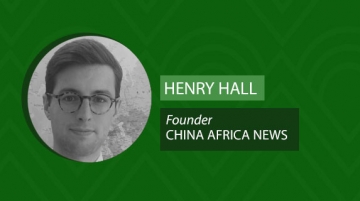
One of the most durable narratives about the Chinese in Africa is that the PRC is now just the newest foreign country to colonize the continent. While the Europeans may have used brute force, according to this widely-held perception, the Chinese instead using money to buy Africa’s land, corrupt its leaders and export its raw materials. Sure the methods may be different but the outcome is effectively the same: Africa is again being victimized by yet another imperial power.
It’s not surprising that a lot of people think this way. In the west, European and U.S. media outlets continue to frame news coverage of the Chinese in Africa in a colonial context.”Is China the World’s New Colonial Power?,” reads a May 2017 headline from the Sunday New York Times and CNBC.com’s “Recolonizing Africa: A Modern Chinese Story?” highlight the pervasiveness of this language.
There’s just one very small problem. China is NOT colonizing Africa.
When one country colonizes another, as the Europeans did in Africa, it’s an all-encompassing form of domination. The French, Belgians and British, among others, used horrendous violence to impose their language, culture, religion, administrative systems and then stole the resources in their conquered lands without even a consideration of compensation for its inhabitants.
To label China a “colonizer” or “benefactor” does little to help us understand the true nature of its relationship with the African continent — Hannah Ryder, CEO of Development Reimagined
By any measure, the Chinese in Africa do not fit this profile. In fact, when it comes to investment, the Chinese are not even the leading source of FDI in Africa, ranking below both the French and Americans, according to Ernst & Young. Some might argue that China’s new military base in Djibouti is a sign of Beijing’s imperial ambitions on the continent. That too does not equate colonialism as the Chinese are paying the Djibouti government handsomely for the privilege to lease their land alongside the U.S., French and Japanese militaries who are also there. And what all about the resources? Those too are being paid for either in the form of cash or infrastructure but they are not being pillaged as they were by other foreigners a century ago.
 Just because the Chinese are not colonizing Africa does not mean they are innocent of creating all sorts of new problems across the continent. China’s preference to deal with elites, particularly those in less democratic countries where corruption is rife and transparency is minimal, deserves scrutiny. China’s unwillingness to do more to clamp down on its own companies who engage in rampant environmental and wildlife destruction across the continent should be passionately scorned. Those and many other problems brought about by China’s surging presence in Africa should be investigated and criticized when they are found to be at fault. But that is not colonialism.
Just because the Chinese are not colonizing Africa does not mean they are innocent of creating all sorts of new problems across the continent. China’s preference to deal with elites, particularly those in less democratic countries where corruption is rife and transparency is minimal, deserves scrutiny. China’s unwillingness to do more to clamp down on its own companies who engage in rampant environmental and wildlife destruction across the continent should be passionately scorned. Those and many other problems brought about by China’s surging presence in Africa should be investigated and criticized when they are found to be at fault. But that is not colonialism.
Kenya-native and founder of the Beijing-based sustainable development consultancy Development Reimagined argues that not only is it factually incorrect to label China as some kind of neo-colonial power in Africa, it’s also disrespectful to her ancestors and the tens millions of other Africans who suffered under the brutality of actual colonial rule. “To call China a colonial power is to diminish the true horrors that were faced by the colonized communities, including by my own relatives, who were detained by the British colonial authorities,” she wrote in a provocative article for Project Syndicate entitled “The People’s Republic of Africa?”
Show Notes:
- Harvard Political Review: China’s Investment in Africa: The New Colonialism in Africa by Elizabeth Manero
- The Telegraph: Why China is Trying to Colonise Africa by David Blair
- The Global Journal of Management and Business Research: China, Africa’s New Colonial Master? by Emmanuel Igbinoba
 Hannah is a Kenyan and British diplomat and economist with over 15 years of experience, who most recently led the United Nations Development Programme’s work with China to help it scale up and improve its cooperation with other developing countries, including in Africa. She writes for a range of publications including the Guardian, runs her own blog “development refreshed”, and was recently nominated as 2016 “New African Woman on the Rise”. She has contributed to a range of publications, most notably in 2006 she co-authored the Stern Review of the Economics of Climate Change. From Beijing, she continues to provide strategic advice to a range of Chinese and international organisations.
Hannah is a Kenyan and British diplomat and economist with over 15 years of experience, who most recently led the United Nations Development Programme’s work with China to help it scale up and improve its cooperation with other developing countries, including in Africa. She writes for a range of publications including the Guardian, runs her own blog “development refreshed”, and was recently nominated as 2016 “New African Woman on the Rise”. She has contributed to a range of publications, most notably in 2006 she co-authored the Stern Review of the Economics of Climate Change. From Beijing, she continues to provide strategic advice to a range of Chinese and international organisations.





